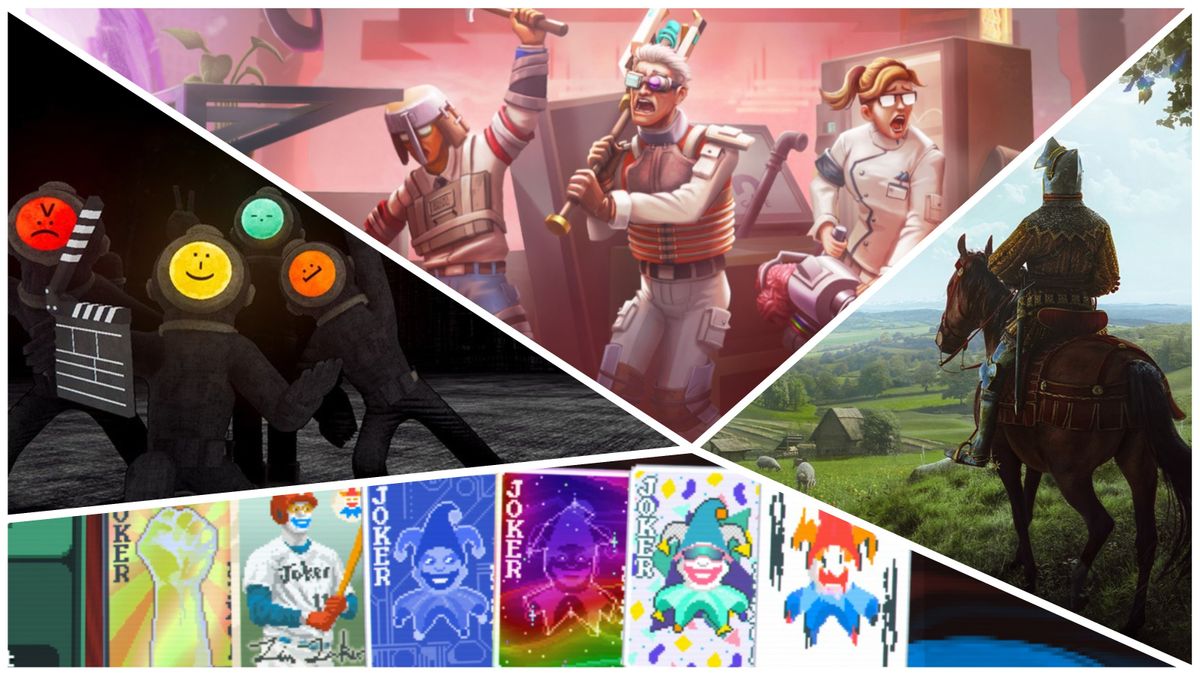Frenetic Pony
Veteran

To put it simply: Games have gotten too expensive to make. To put it only slightly less simply: Game budgets are growing much faster than the audience is. In fact, at the moment, the audience for AAA games barely seems to be growing at all.
In a thought-provoking thread on X, former Square Enix executive Jacob Navok laid out why games like Final Fantasy 16 and Final Fantasy 7 Rebirth could fall short of their sales expectations. Were Square Enix’s hopes unreasonable? No, Navok explained: The publisher usually set reasonable profit goals based on the games’ budgets, but due to the very long development process of AAA games like this, those budgets were set as early as 2015, before Fortnite and other free-to-play and live-service games changed many players’ gaming habits.
Navok pointed to the rise of live-service games, Fortnite in particular, as a reason for this: games that become permanent fixtures for vast numbers of players, sucking up hundreds of hours of playtime for each player, and squeezing out game purchases they might otherwise make.
For everyone else, the days of the AAA platform exclusive are over. Even if a price hike is coming — even if the scope of the games can be reined in — the business logic of exclusive games has been broken for good.

Let's review this year's bounty of unconventional breakouts:
- "Half-Life co-op sleepover inside Black Mesa where you make alien soup for your friends," developed by a team of 10 in New Zealand
- "Poker, but insane," from a first-time game developer in Canada
- "What if Pikachu had a gatling gun, and the Pikachus you didn't Pika-choose could be Pika-enslaved"
- "Metroid, but you're always the ball"
- Medieval citybuilder where you might find yourself micromanaging 14 families in order to produce bread
- Resident Evil, but a station wagon
- "What if YouTube was hell, but like, more than usual"
- "Vampire Survivors, but Deep Rock Galactic"
- "Diablo, but hold the dungeons, just the inventory, please"
This isn't a cute trend, it's seismic activity. In my 16 years at PC Gamer, I've never seen a span of underdog hits this dense, led in number and time by Palworld's 1 million sales in eight hours, then 8 million in six days. Since January 1, we're averaging an unexpected breakout game every 16 days.
It's the same trajectory price increases have always been on AFAIK. Nothing has really changed.The notion of 'game budgets are increasing faster than the audience is' is super well established. This doesn't even need explaining to most people. But it's not actually explaining WHY the costs of games have increased to the absolutely INSANE degree they have.
I doubt that's the answer. Plenty of creatives can't manage projects and without an executive to make hard calls, games would spend forever in development iterations. Creatives are never happy with their work and always want better. Every game would end up a Star Citizen, or GT or Dreams or The Last Guardian. There either needs be a change in production methods, or a reduction in scope, but that reduction in scope is largely determined by what the consumer (is believed to) expects. If there's enough evidence lower-budget titles can be more profitable, companies will shift.I really think the whole game industry needs a massive reckoning, and it probably wont ever come cuz it would require publishers to hand more power over to creatives and trust them to execute on a vision.
Capcom has been killing it recently, FY 2023/24 was a record for them, without any overtly obvious need for a "budget" asset title as Mark in the above contends must be done. But they've also not subjected themselves to scope creep, RE4 remake isn't any longer than RE4 original, unlike the Final Fantasy 7 remake and it's 3 game long tirade.There either needs be a change in production methods, or a reduction in scope, but that reduction in scope is largely determined by what the consumer (is believed to) expects. If there's enough evidence lower-budget titles can be more profitable, companies will shift.
No man. The actual leaps in costs from one generation to another now is wildly unprecedented.It's the same trajectory price increases have always been on AFAIK. Nothing has really changed.
The trajectory is the same.No man. The actual leaps in costs from one generation to another now is wildly unprecedented.
In the XB1/PS4 era, you could make a AAA game for $30m. Now we're at like $100m minimum. All while advertising budgets are like $60m+ for any given AAA game.

Who's refusing to question it? I simply pointed out that's the same trajectory it's been on since forever. It's not unprecedented - it's 100% precedented if you look at the data. Years ago devs could see we were heading that way. It's exactly the same as the housing crisis. Completely obviously going to happen, but no-one did anything.This doesn't need to be normal, and I find it ludicrous to just accept that as the case, and walk around one of the sources of the problem and not even question it.
?(...)
Completely obviously going to happen, but no-one did anything.
(...)
I don't understand. How does this relate to the historical cost-increase of game development??
Just the most relevant, most hardcore ARPG title with most aggressive server side always-online implementation that happens to pay off?
well it's offset/amortized cause it's incremental (instead of carving new path every gen like it's some compulsive thing to do)?I don't understand. How does this relate to the historical cost-increase of game development?
PoE is GaaS, an AA game created by a small studio. Doesn't really reflect on the standalone AAA cost increases. On the graph, it'd be one of the lower points populated by indies and smaller projects. NMS would be similar, a low relatively low initial cost with limited content that then self-funded its growth over the yeas. I wonder how the cost to produce PoE compares to ARPGs of yesteryear? Did it still follow the doubling every five years or so?well it's offset/amortized cause it's incremental (instead of carving new path every gen like it's some compulsive thing to do)?
It's mainly a spiritual successor of Diablo2. IDK if rest of ARPG are even comparable because apparently the influence is too great and also too easy to get lost while trying to make something similar. There's no comparable concept of "endgame-play" .PoE is GaaS, an AA game created by a small studio. Doesn't really reflect on the standalone AAA cost increases. On the graph, it'd be one of the lower points populated by indies and smaller projects. NMS would be similar, a low relatively low initial cost with limited content that then self-funded its growth over the yeas. I wonder how the cost to produce PoE compares to ARPGs of yesteryear? Did it still follow the doubling every five years or so?
This is an idea I came up with years ago, I called it the repository.
I have an even better idea. They can also share the game engine and work on improving it together!
So they took my advicethey have already been doing this
